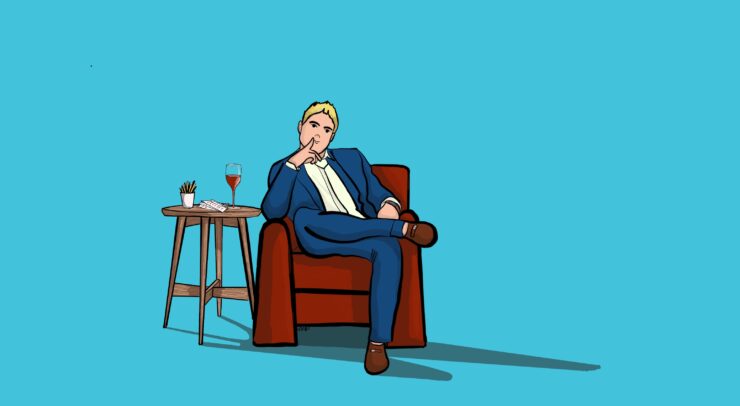The generational impact of 9/11
This year marks the 17th anniversary of the September 11 attacks on the United States. This event had a profound impact on the world and is referenced by many as a landmark for a new chapter, the post-9/11 era. This back to school season marks the last year all university first-years were born before 9/11. In the following testimonies, contributors express how they believe 9/11 shaped their generation and their lives.
Growing up pre- and post-9/11
Unlike most contributors to this piece, I had already started university when 9/11 happened. I had a part-time job at a Jean Coutu post office and can recall the day of the attacks clearly. It was a slow Tuesday at work, and I remember fumbling around my station, pretending to be doing something important so as to get out of doing clerical chores.
Out of the blue, my normally very reserved boss ran out of the backroom shouting, “The towers! They hit the towers!” There was no social media at that time and smart phones did not exist, so I had no way of knowing what she was referring to. So I went home for my lunch break thinking she was a little strange. After eating, I switched on the television and got the shock of my life.
I should mention that I was not searching for news, but for my favourite soap opera. Every single channel had replaced their regularly scheduled programming with direct live news coverage of New York City and the aftermath.
From that day onwards, people everywhere were glued to CNN and other news networks. Nothing else was discussed at work for at least a week. There seemed to be a cloud of melancholy in the air that still hasn’t completely lifted.
All of a sudden, nothing mattered more than national security. Airport regulations changed drastically post 9/11, with liquids and creams becoming a potential threat. Concert and mall security also increased. Racial distrust was thrust into the spotlight and clearly no one felt like taking any chances. Moreover, politicians worldwide began using this tragic event as a platform to promote nationalistic values.
There isn’t one particularly strong memory that I have post 9/11, but rather a myriad of unpleasant memories: having toothpaste or water bottles taken away from me before a flight, requiring an additional hour to clear airport security, listening to friends’ conspiracy theories regarding the attacks, and the rise of divisive statements and irrational fears targeting “other” groups of people.
Obviously, students attending university now would not feel the creeping changes in the restrictions as deeply as I did. Every year, I feel more and more mistrust and disappointment in this current state of affairs.
It has been 17 years since the New York attacks and, in my opinion; the world has become a much darker space. In Leonard Cohen’s words, however, “There is a crack in everything, that’s how the light gets in.”
—Nadia Helal, Fulcrum Contributor.
Growing up in the post-9/11 generation
On September 11th, 2011, I was two months shy of two years old. I have no recollection of that moment, however my dad has vivid memories of flipping through TV channels with me, and suddenly seeing a monstrous Boeing 767 crashing into the World Trade Centre. While it may be easy for those in my father’s generation to discuss the stark contrast between the pre-9/11 world and the post-9/11 world, those of us in my generation can only describe growing up in a post-9/11 world. The tragedy has been discussed and treated as a relevant historical event rather than a recent event.
It is foolish to ignore the rise in Islamophobia as a result of the tragedy of 9/11, however it is also interesting to see, in my opinion, how Islamophobia has decreased in our generation in comparison to the older ones. The generations before us experienced 9/11 in their adult lives and many felt the need to place blame and retaliate. Hence, an all-too-common Islamophobic rhetoric that takes place in political circles, certain social media pages, and other platforms most often dominated by a much older demographic. This is not to say that Islamophobia is not a definite issue within our society, including within our generation; however, in my perspective, it is undoubtedly less potent and less common than in older generations.
Many in older demographics often discuss the post 9/11 world as marked by fear, where terror and tragedy strikes all too often and political divisions have become fierce. In my opinion, because we know no different, our worldviews are much less cynical. We understand the degree of horror that was the war in Iraq and the turmoil that has ensued since; however, we also understand that evil in the world does not necessarily mean an evil world. We have known no different, thus while we recognize injustice, we don’t necessarily see society as being in a downward spiral, but as possessing potential to rise up and fix its injustices.
Asking someone to describe their generation is a difficult task, as I know no other generation as well as I know my own. However, I do know that as the post-9/11 generation, we have certainly been molded by the events of the past, and not necessarily in a bad way. We are able to analyze the tragedy that was 9/11 from a historical perspective, sometimes diminishing levels of Islamophobia and ignorance to the issue. We are also able to view the world with a less tainted and cynical viewpoint, as we not only know no different, but we also have confidence in ourselves as molders of the future, to create a world with less injustice.
—Laura O’Connor, Fulcrum Contributor.
Growing up in the post-9/11 culture
I really have no idea just how impactful 9/11 has been on my life. And that’s because I just don’t know what life would be like without it.
A similar experience would be that of the Internet. The Internet, much like 9/11, has had profound effects on everyday life for just about everybody. But someone who was born after the Internet monopolized our lives would not have a reference point to appreciate how significant it has truly been.
It’s the same with 9/11. To fully appreciate how significant 9/11 was, all I can really do is listen to what other people have to say about it.
That’s not to say that I’m not left with considerable evidence of how it has shaped the way I think. I believe it could help explain why the media are so hesitant to label school shooters as terrorists. 9/11 is the event that has become the face of terrorism, and has thereby changed the common understanding of terrorism from merely someone who causes terror (ie. a school shooter) to a (presumably foreign) person who engages in a violent act with some sort of political motive.
On the other hand, it’s hard to sympathize with certain characterizations of the effects of 9/11 that one could read about. It’s often said that 9/11 created a culture of paranoia (and even xenophobia) in North America. But I find this really hard to believe. These traits exist in all societies at all times to varying degrees.
Sure, it’s not hard to believe that in the period immediately after 9/11 those anti-other sentiments increased their volume, and cries for nationalism hit a little bit closer to the heart. But these effects are not at all unique to 9/11. Any national tragedy perpetuated by actors of a foreign state would illicit similar responses; once again, in any society at any time.
So I really just don’t know how much 9/11 has affected me. I don’t remember times before or immediately after it, and all I know is the post 9/11 culture that I grew up in. The only thing I can say for sure is that I hope nothing like this happens again.
—Connor Chase, Fulcrum Contributor.






